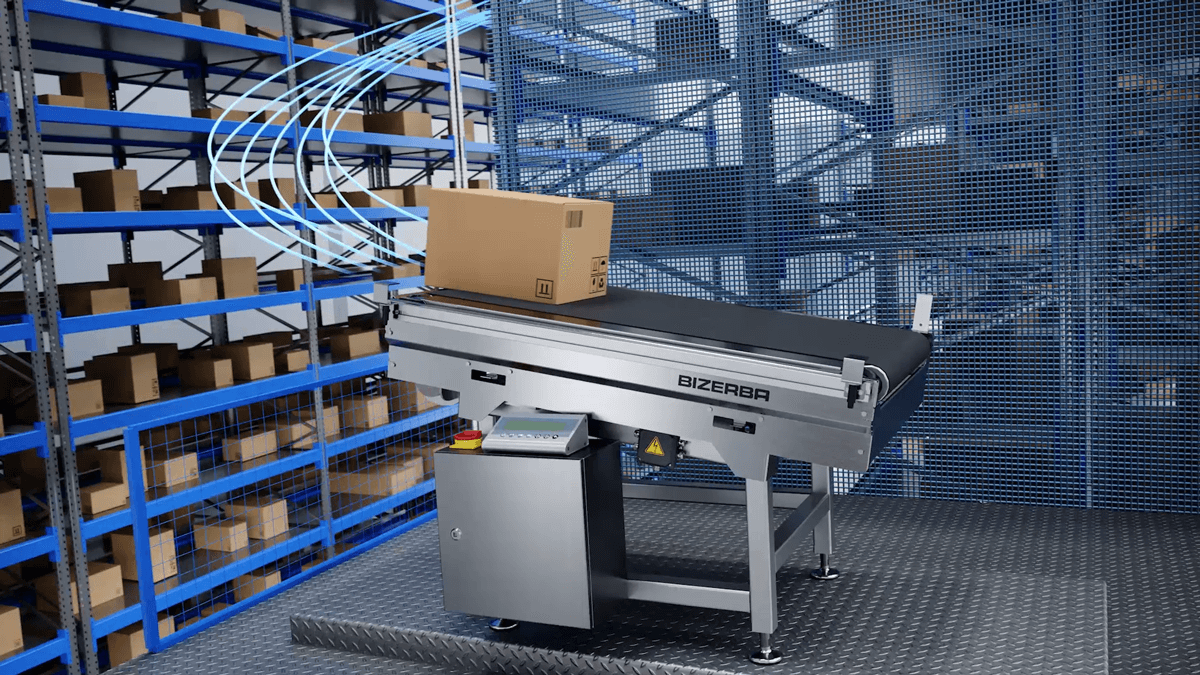The importance of dynamic weighing in logistics
In logistics, speed and precision are critical to maintaining smooth and efficient operations. Dynamic weighing systems allow companies to weigh parcels and cargo while they are moving. This eliminates the need to stop and weigh each item manually, increasing throughput and minimizing delays. Dynamic weighing scales are specifically designed to weigh items as they move along conveyor belts or other transport systems, ensuring precise measurements without disrupting the flow of operations.
This type of system is especially valuable in busy distribution centers, freight terminals, and warehouse facilities where large volumes of packages need to be processed quickly. Real-time weight data helps logistics companies manage shipments, optimize routes, and meet strict delivery schedules.
Key features and benefits of dynamic weighing systems
Real-time data collection:
Dynamic weighing systems provide instant weight data for parcels and cargo. This real-time information allows logistics centers to monitor shipments, calculate shipping costs accurately, and comply with weight regulations set by transportation authorities. The ability to access this data immediately ensures faster decision-making, leading to more efficient workflows.
High-speed accuracy:
Dynamic weighing systems are built to handle the fast pace of logistics operations. They accurately weigh items as they move along conveyor systems, even at high speeds. This means that businesses can process a large volume of items without compromising on precision. Accuracy is critical, especially when calculating shipping fees or ensuring that transport vehicles stay within legal weight limits.
Error reduction:
Advanced technology minimizes the potential for errors caused by vibrations or environmental factors in fast-paced logistics environments. This ensures that even in the busiest distribution centers, weight data remains precise. By reducing the risk of incorrect shipping charges or missed deliveries, dynamic weighing systems help prevent costly mistakes that could impact customer satisfaction and revenue.
Compliance with regulations:
In logistics, regulatory compliance is key, especially when transporting goods across different regions. Dynamic weighing systems ensure that trucks, airplanes, and other vehicles aren't overloaded, helping businesses avoid fines or penalties for exceeding weight limits. Accurate weighing also plays a critical role in maintaining safety standards, preventing accidents caused by unevenly distributed or overweight cargo.
Seamless system integration:
Modern dynamic weighing systems can be integrated with existing logistics software. This integration automates data sharing, allowing weight information to flow directly into operational databases for more efficient process management. Seamless integration reduces the need for manual data entry and improves the overall accuracy of records.
Applications in the logistics industry
Dynamic weighing systems are versatile tools used in various logistics applications, including:
Parcel sorting:
In large logistics hubs, parcel sorting is a high-speed process. As parcels move along conveyor belts, the dynamic weighing system weighs them while they are in motion. The systems can also be integrated into sorting applications and infeed lines, ensuring efficient handling and faster delivery times.
Cargo weighing:
For companies that handle freight, dynamic weighing systems provide a crucial service by weighing cargo as it is loaded onto trucks, planes, or ships. This ensures that vehicles are not overloaded, which is important for both safety and legal compliance. Accurately weighing cargo also helps optimize space and load distribution, which can improve fuel efficiency and reduce transportation costs.
Freight optimization:
Dynamic weighing systems play a role in optimizing freight loads. By knowing the exact weight of items being transported, logistics companies can load vehicles more efficiently, maximizing space while ensuring that weight limits are not exceeded. This improves the overall productivity of the logistics operation and ensures that transport vehicles are used to their full capacity.
Factors to consider when choosing a dynamic weighing system
When selecting a dynamic weighing system for logistics, it's important to consider several factors:
Speed and throughput:
The system must be able to keep up with the speed of your operations without sacrificing accuracy. In high-speed environments like distribution centers, the ability to weigh large volumes of items quickly is essential.
Accuracy requirements:
Precision is key, especially when shipping costs are based on weight. Look for systems that offer advanced technology to correct for environmental factors like vibrations and movement, ensuring accurate readings in fast-moving environments.
Integration capabilities:
The system should integrate seamlessly with your existing logistics software to automate workflows and improve process efficiency. This will reduce manual data entry and improve overall accuracy.
Durability:
Choose a dynamic weighing system that can withstand the rigors of a logistics environment, including exposure to dust, moisture, and frequent use. Systems built with durable materials will provide reliable service over time and reduce the need for repairs or replacements.
Conclusion
Dynamic weighing systems are essential for logistics companies, offering speed, accuracy, and real-time data. By accurately weighing items in motion, these systems help improve efficiency, reduce errors, and ensure compliance with regulatory standards. From parcel sorting to cargo weighing and inventory management, dynamic weighing systems play a critical role in keeping logistics operations running smoothly. Investing in the right system can lead to significant improvements in productivity, cost savings, and customer satisfaction.
